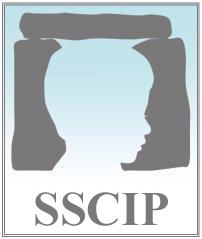
September 11-13, 2015
DePaul University
Chicago, Illinois
Conference Organizer: Jane Eva Baxter
The annual conference of the Society for the Study of Childhood in the Past (SSCIP) brings
together scholars from a wide range of academic disciplines including
History, Archaeology, Literature, Art History, Sociology, Religious
Studies, Anthropology and Architecture to facilitate interdisciplinary
dialogs about childhood in the past.
The 8th International SSCIP
Conference was held at DePaul University in Chicago, Illinois, USA from
Friday, September 11 to Sunday, September 13, 2015. The theme was The Ideal Child: Presentation, Representation, and Commemoration. The conference includes sessions and presentations that address the conference theme, as well as others that focus on aspects of recent research into children and childhood in the past.
View alphabetized list of abstracts.
The Ideal Child: Presentation, Representation, and Commemoration
Most
societies have particular ideals of who and what a child should be, and
what an ideal childhood should entail. Social constructions of ideal
children and idealized childhoods are evidenced in artistic and literary
depictions of children, in guides for raising children, in the
institutions created for children, in the objects made for children’s
use, and in the commemorative practices for individuals who died as
children.
Similarly, childhood and children also may be used as powerful
symbols in art and literature to convey particular virtues, vices, or
other aspects of the human condition. Ideals of childhood often overlap
with other types of cultural identities including gender, socio-economic
status, ethnic affiliation, religious affiliation, and national
identity. Many of our sources for the study of childhood in the past
offer clear depictions of idealized childhoods, while other sources more
vividly engage tensions between the ideal child and the real lived
experiences of children in the past.
This conference offers the
opportunity for scholars from a variety of disciplines to explore how
children are idealized cultural subjects and how ideal childhoods are
defined in different times and places.
Potential Topics:- Children and the embodiment of cultural ideals
- Cultural ideals of biological development and life-stages
- Children as cultural symbols
- Idealized views of children in literature, art, and image
- Artifacts, objects, and socialization
- Ideals of childhood and gender
- Commemorative practices and idealized childhood
- Children as representatives of families, communities, and/or nations